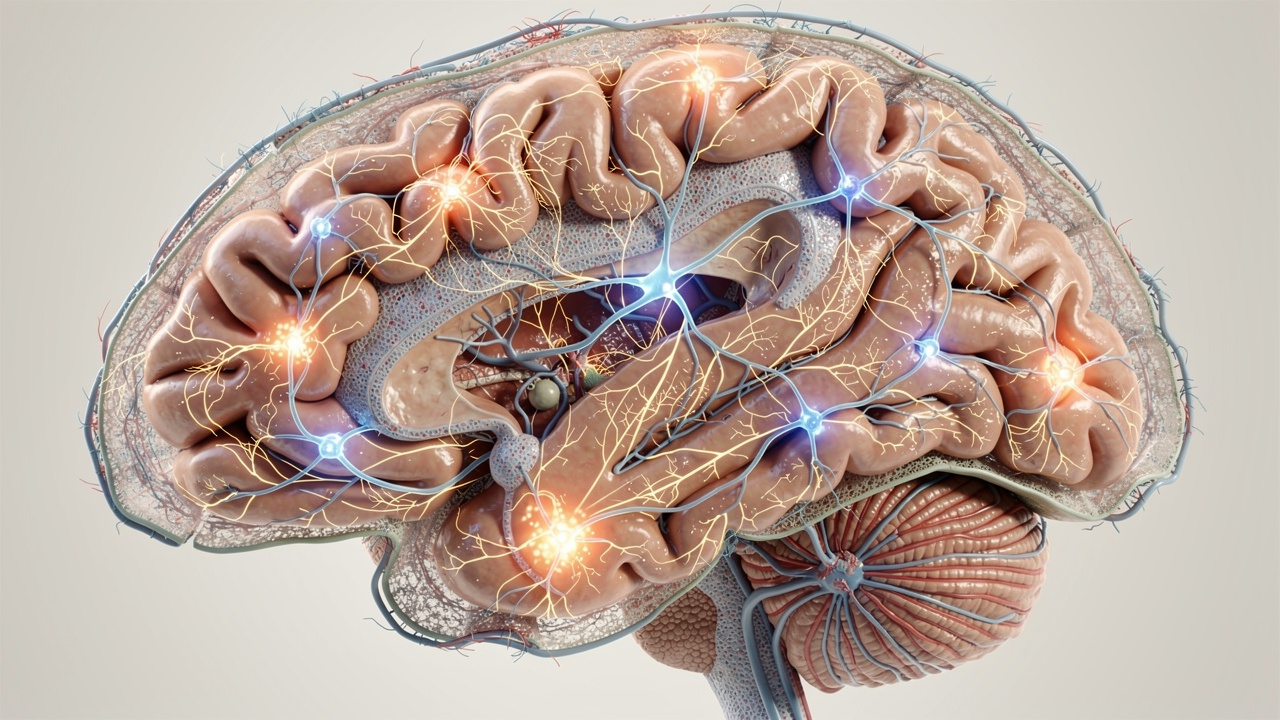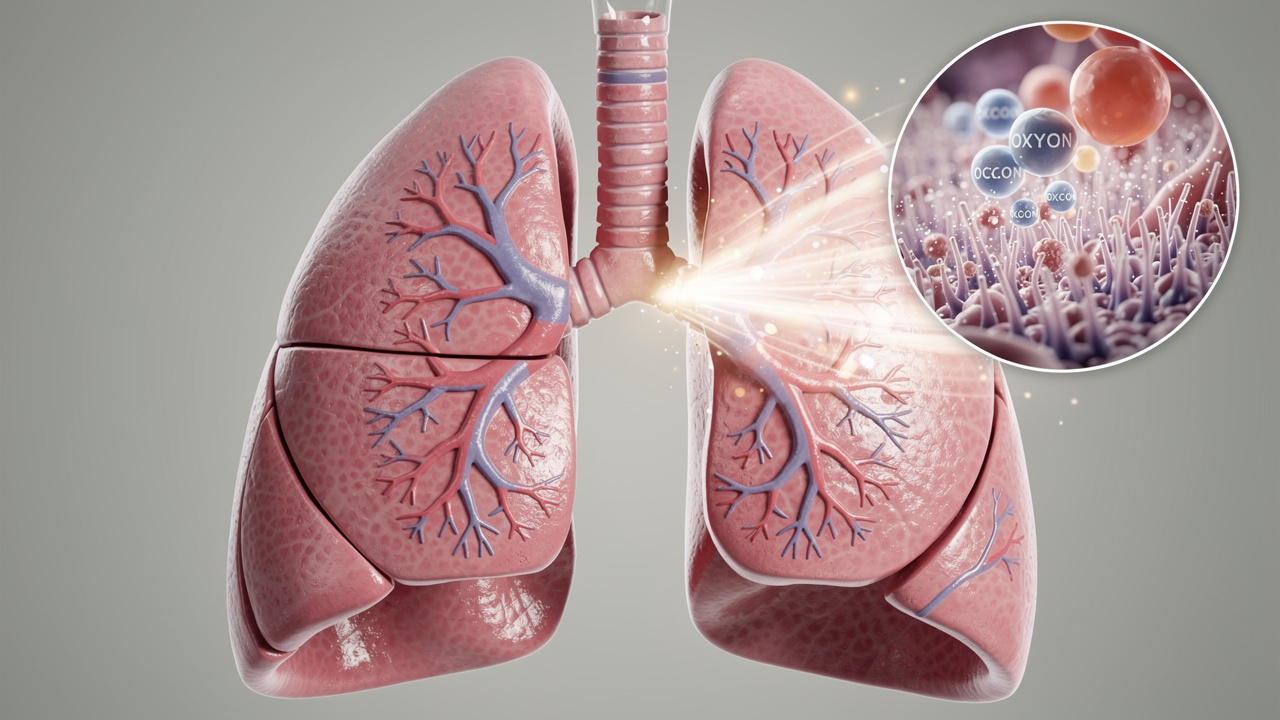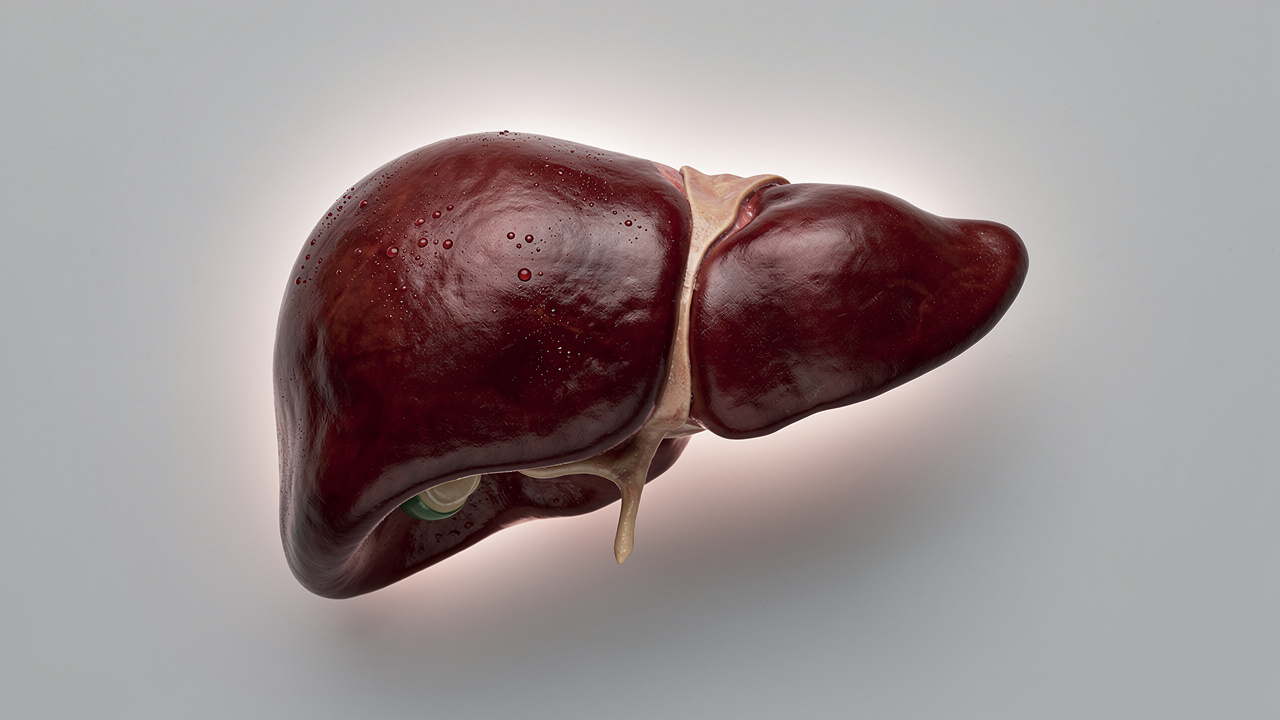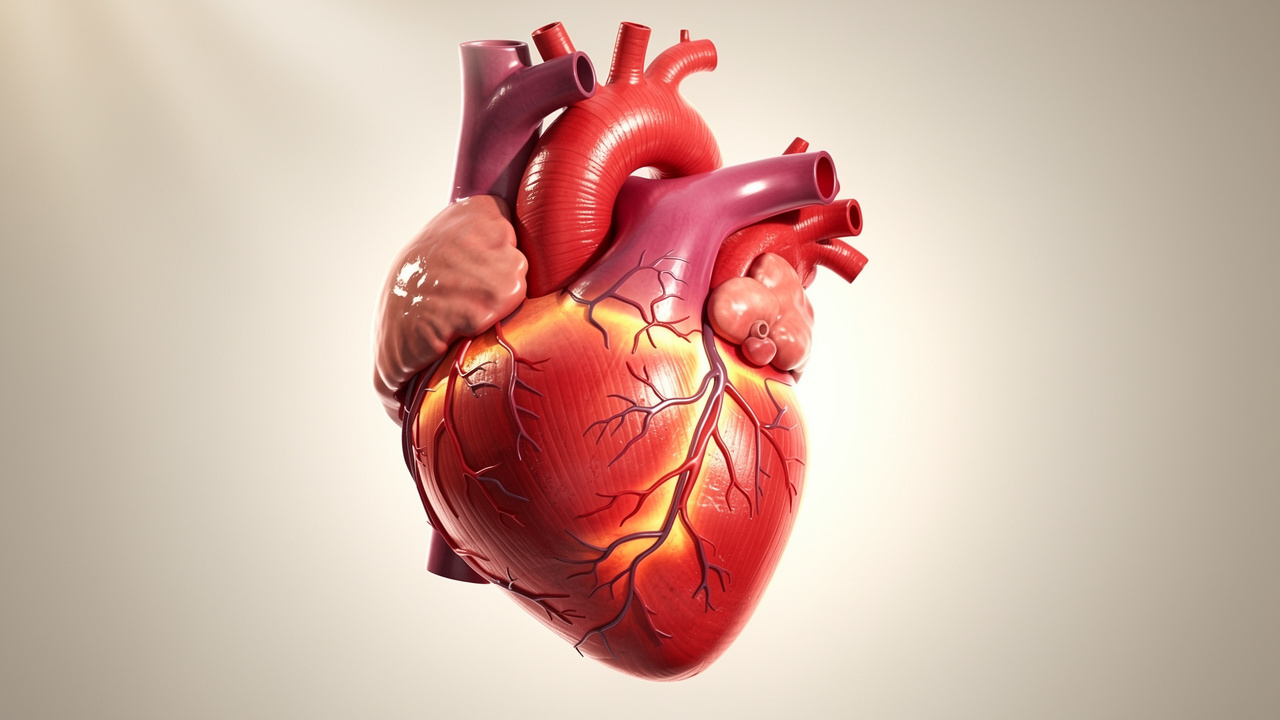N Acetyl Cysteine Benefits: Longevity, Detox, And Performance
N-acetyl cysteine (NAC) is one of the most researched amino-acid–based supplements for detox, brain health, and long-term resilience. If you’re interested in n acetyl cysteine benefits for energy, focus, recovery, or anti-aging, NAC deserves a close look.
NAC is the supplemental form of cysteine, a “conditionally essential” amino acid and a direct building block for glutathione—often called the body’s master antioxidant. By feeding glutathione production, NAC supports cellular defense across the brain, liver, lungs, and cardiovascular system.
This guide breaks down how NAC works, the most meaningful n acetyl cysteine benefits for high performers and longevity seekers, how it’s used in clinical medicine, and how to think about dosing and safety.
“Glutathione is the most important antioxidant produced inside cells.” — Gustavo Bounous, MD, PhD
What Is N-Acetyl Cysteine (NAC)?
N-acetyl cysteine is a modified form of the amino acid L‑cysteine, with N-Acetylcysteine (NAC): Impacts on human health documented across multiple physiological systems. Your body can make cysteine from methionine and serine, but under stress, illness, or poor diet, demand can exceed supply—this is where NAC comes in.
Key points:
-
Source: Derived from cysteine, which is found in protein-rich foods like poultry, eggs, yogurt, cheese, legumes, and seeds.
-
Main role: NAC is the most efficient supplemental way to raise cysteine levels and, in turn, boost glutathione inside cells.
-
Why that matters: Glutathione is the primary antioxidant that defends mitochondria, DNA, and cell membranes from oxidative damage.
At a high level, the core n acetyl cysteine benefits fall into a few categories:
|
System |
Key N Acetyl Cysteine Benefits |
|---|---|
|
Brain & Mood |
Supports cognitive health, resilience to oxidative stress, and adjunctive support in several psychiatric conditions |
|
Liver & Detox |
Medical antidote for acetaminophen overdose; supports liver detox pathways |
|
Lungs |
Thins mucus, supports chronic bronchitis and COPD, and helps clear airways |
|
Metabolic & Heart |
Supports healthier blood sugar, cardiovascular resilience, and post‑event recovery |
|
Fertility & Hormones |
Supports sperm quality and ovulation, especially in oxidative-stress–driven infertility |
|
Exercise & Recovery |
May reduce fatigue and oxidative stress from intense training |
How NAC Works: Antioxidant, Anti-Inflammatory, And Mucolytic
Understanding how NAC works helps you see where it may fit into your supplement stack.
1. Precursor To Glutathione (“Master Antioxidant”)
Glutathione is a tripeptide made from glutamine, glycine, and cysteine. Among these, cysteine is the rate-limiting factor—if cysteine is low, your body simply cannot make enough glutathione.
NAC:
-
Provides a stable, bioavailable source of cysteine
-
Enters cells and is converted to cysteine
-
Drives glutathione synthesis inside the liver, brain, and immune cells
Because of this, many of the most important n acetyl cysteine benefits are actually glutathione benefits: resistance to oxidative stress, support for detox, and defense against toxin-induced cell damage.
2. Direct Antioxidant And Anti-Inflammatory Effects
Beyond feeding glutathione, NAC has a free thiol (-SH) group that can directly neutralize certain reactive oxygen and nitrogen species.
In parallel, NAC:
-
Inhibits NF‑κB, a transcription factor that turns on inflammatory genes
-
Helps reduce production of pro-inflammatory cytokines such as TNF‑α, IL‑1β, and IL‑6
That combination—antioxidant plus anti-inflammatory activity—underlies many of the neurological, cardiovascular, and metabolic n acetyl cysteine benefits seen in research.
3. Mucolytic Action: Thinning Thick Mucus
One classic use of NAC is as a mucolytic (mucus-thinning agent):
-
NAC breaks disulfide bonds in mucin proteins
-
This reduces the thickness and stickiness of mucus
-
Result: mucus becomes easier to clear from lungs, sinuses, and airways
This is why NAC is widely used in chronic bronchitis, COPD, and cystic fibrosis care, and why many people reach for NAC during respiratory season.
4. Support For Detox And Metal Binding
Because NAC raises glutathione and contains a thiol group, it can:
-
Support phase II detoxification in the liver
-
Bind certain metals (copper, iron, and some heavy metals), forming complexes that are easier to excrete
NAC is not a stand‑alone detox supplements, but these properties contribute to its organ-protective profile.
N Acetyl Cysteine Benefits For Brain And Mental Performance

For biohackers and longevity enthusiasts, the brain effects of NAC are some of the most compelling.
Glutamate Balance And Neuroprotection
NAC crosses the blood–brain barrier and influences two central systems:
-
Glutathione: Shields neurons from oxidative damage and helps maintain mitochondrial function.
-
Glutamate: Helps normalize glutamate signaling, which is involved in learning, memory, and mood.
Excess or dysregulated glutamate can be toxic to neurons. By improving redox balance and indirectly modulating NMDA receptor function, NAC may help maintain healthier glutamate activity and protect brain health over time.
“Redox imbalance and mitochondrial dysfunction appear to be central to many psychiatric conditions.” — Michael Berk, MD, PhD
Mental Health Applications (Adjunctive Use)
Clinical research has explored n acetyl cysteine benefits as an add‑on (not a replacement) to standard care in several conditions:
-
Schizophrenia: Trials using 1,200–2,000 mg/day NAC alongside antipsychotics have shown improvements in both “positive” symptoms (like hallucinations) and “negative” symptoms (like apathy and social withdrawal), as well as some cognitive measures.
-
Bipolar Disorder & Depression: Data are mixed. Some studies show improvements in overall symptom severity and quality of life, while others show limited change in core depressive symptoms.
-
Obsessive–Compulsive Disorder (OCD): Several studies suggest NAC may reduce OCD severity when added to conventional treatment, likely through glutamate modulation.
-
Substance Use (nicotine, cannabis, cocaine): Early research indicates NAC may reduce cravings and support abstinence, again likely through effects on glutamate circuits and oxidative stress.
For high performers, these same mechanisms translate to:
-
Better resilience under stress
-
Potential support for brain fog linked to inflammation or oxidative stress
-
Long-term neuroprotection as part of a broader anti-aging protocol
Always discuss NAC supplementation with a clinician if you have a psychiatric diagnosis or are on prescription medication.
Respiratory And Immune Benefits Of NAC

Among the most established n acetyl cysteine benefits are its effects on the lungs and immune defense.
Chronic Lung Conditions And Mucus Clearance
Because NAC thins mucus and boosts glutathione in lung tissue, it has been widely studied in:
-
Chronic Obstructive Pulmonary Disease (COPD):
-
High doses (≥1,200 mg/day) can reduce the frequency of COPD flare-ups and improve small airway function.
-
-
Chronic Bronchitis:
-
Helps decrease coughing, wheezing, and respiratory attacks by making mucus easier to clear and by reducing oxidative stress in the airways.
-
-
Cystic Fibrosis (CF):
-
Inhaled NAC has long been used to break up sticky mucus in CF. High-dose oral NAC can increase glutathione in immune cells within the lungs, but long-term outcome data are mixed.
-
-
Idiopathic Pulmonary Fibrosis (IPF):
-
Some analyses suggest NAC can slow the decline in lung function when used with standard therapy, though results are not consistent across all trials.
-
For athletes or active professionals with exercise-induced bronchoconstriction or chronic congestion, NAC’s mucolytic and antioxidant effects can make breathing feel less restricted, especially under heavy training loads.
Immune System Support
Glutathione is essential for healthy immune cell function. By feeding glutathione, NAC:
-
Supports T‑cell and NK‑cell activity
-
Helps maintain a balanced inflammatory response
-
May reduce frequency or severity of certain respiratory infections in those under high oxidative stress
NAC is not a stand‑alone immune strategy, but as part of a broader protocol (sleep, nutrition, vitamin D, etc.), the immune-related n acetyl cysteine benefits are meaningful.
Liver, Kidney, And Systemic Detox Support

Acetaminophen Overdose: Life-Saving Application
NAC’s most dramatic medical use is as the standard antidote for acetaminophen (paracetamol) overdose.
-
Acetaminophen overdose depletes liver glutathione, allowing a toxic metabolite (NAPQI) to accumulate.
-
Intravenous NAC rapidly restores glutathione, neutralizes NAPQI, and can prevent liver failure when given in time (ideally within 8–10 hours).
This same mechanism—rapid glutathione replenishment and detox pathway support—is why many people look to n acetyl cysteine benefits for everyday liver health.
Everyday Liver Support
Outside emergency care, NAC has shown:
-
Nonalcoholic Fatty Liver Disease (NAFLD):
-
In small studies, 600 mg twice daily for several months reduced liver enzyme levels, suggesting less inflammation and cell injury.
-
-
Other liver insults:
-
NAC may improve outcomes in some forms of non-acetaminophen acute liver failure by improving blood flow and reducing oxidative stress in the liver.
-
NAC is not a replacement for lifestyle changes (nutrition, alcohol moderation, weight management), but it can be one supportive tool for people focused on liver resilience.
Kidney Protection: Mixed Evidence
NAC has been studied to prevent:
-
Contrast-induced kidney injury (from imaging dyes)
-
Acute kidney injury after cardiac surgery
Overall, large reviews show inconsistent benefits. NAC may improve vascular function in some advanced kidney disease patients when given intravenously, but it is not considered a reliable stand‑alone kidney-protective strategy.
Cardiovascular And Metabolic N Acetyl Cysteine Benefits

Heart Protection
Oxidative stress and inflammation are central to cardiovascular aging. NAC’s antioxidant and anti-inflammatory effects have been studied in:
-
Acute Myocardial Infarction (Heart Attack):
-
In the NACIAM trial, high‑dose IV NAC with nitroglycerin reduced infarct size in patients undergoing emergency intervention for STEMI, likely by protecting heart tissue from oxidative damage and improving blood flow.
-
-
Post-Cardiac Surgery Atrial Fibrillation:
-
Meta-analyses show that perioperative NAC can lower the incidence of atrial fibrillation after surgery, though it doesn’t clearly affect mortality or hospital stay.
-
For preventive cardiometabolic health, the data are more modest but still motivating.
Blood Sugar, Inflammation, And Metabolic Syndrome
Chronic inflammation in fat tissue damages insulin receptors and raises the risk of insulin resistance and type 2 diabetes. Animal work and early human trials point to several n acetyl cysteine benefits:
-
Reduced inflammatory markers (like hs‑CRP)
-
Improved insulin sensitivity (lower HOMA‑IR)
-
Improvements in triglycerides and blood pressure in small metabolic syndrome studies
For people stacking NAC with diet, exercise, and other metabolic tools, it can be a helpful lever for long-term cardiometabolic health.
Fertility, Hormones, And Reproductive Health
Oxidative stress is a key driver of both male and female infertility, which is where n acetyl cysteine benefits become especially interesting.
Male Fertility
Studies show NAC can support:
-
Sperm count, motility, and morphology:
-
600 mg/day for about three months improved these parameters in men with infertility linked to oxidative stress.
-
-
Varicocele-associated infertility:
-
Men who took NAC after varicocele surgery had better semen integrity and a higher partner pregnancy rate than surgery alone in one trial.
-
By defending developing sperm from oxidative damage, NAC may meaningfully improve semen quality in select cases.
Female Fertility
For women, NAC has been most studied in:
-
Polycystic Ovary Syndrome (PCOS):
-
NAC can support more regular ovulation and may increase pregnancy rates when used with standard fertility treatments in some women with PCOS.
-
NAC is not a stand‑alone fertility therapy, but as part of a medically supervised plan, the reproductive n acetyl cysteine benefits are promising for certain subgroups.
Exercise Performance, Recovery, And Anti-Aging

Hard exercise performance raises oxidative stress in muscle and mitochondria. NAC’s antioxidant capacity has led to interest in its role in performance and recovery.
Potential benefits include:
-
Delayed fatigue in endurance exercise:
-
Some studies report longer time to exhaustion in athletes using NAC, especially at higher doses, likely through reduced oxidative damage to muscle cells.
-
-
Reduced muscle soreness and inflammation:
-
By lowering oxidative and inflammatory stress after intense sessions, NAC may support faster recovery between training days.
-
-
Better breathing under load:
-
Its mucolytic effects can matter for athletes who struggle with thick mucus or exercise-induced bronchoconstriction.
-
Evidence is still early and mixed, so think of NAC as an experiment in a broader supplements for longevity stack rather than a solo solution.
Dosing, Forms, And Stacking With Other Therapies
Common Dosing Ranges
There is no official dietary requirement for NAC. Most supplement protocols fall into these ranges:
-
General antioxidant and detox support:
-
600–1,200 mg/day, usually split into 2 doses
-
-
More intensive protocols studied in trials:
-
1,200–3,000 mg/day (often under medical supervision)
-
Because NAC can cause mild gastrointestinal upset in some people, many start at 600 mg/day and increase gradually as tolerated.
Always talk with a healthcare professional before using higher doses or combining NAC with prescription medications.
Forms And Delivery Routes
-
Oral NAC (capsules, tablets, powder):
-
Most common form for daily use. Oral bioavailability of intact NAC is low (<10%), but enough is converted to cysteine to raise glutathione meaningfully.
-
-
Intravenous (IV) NAC:
-
Used medically for acetaminophen overdose and certain acute liver injuries. Some longevity and IV clinics may incorporate NAC into custom drips, usually under physician supervision.
-
-
Inhaled (nebulized) NAC:
-
Delivers NAC directly to the airways for mucus-thinning effects, mostly in clinical or specialist settings.
-
NAC And NAD+ Stacks
For people already using IV NAD+ or oral NAD+ precursors:
-
NAC may help protect mitochondria from the oxidative stress that comes with higher metabolic activity.
-
Combining NAC with glycine (for example, in “GlyNAC” formulations) has shown benefits in small aging-related trials, including improved glutathione status and some markers of metabolic health.
Discuss any advanced stacking with a clinician familiar with both NAC and NAD+ therapy.
NAC Nasal Spray And Glutathione Support
Some biohackers are interested in nasal delivery for faster central nervous system access and respiratory support.
NAC Nasal Spray
While NAC itself is used in some nasal and inhaled products, many people also target glutathione directly because it is the end product that NAC helps build. If you’re focusing on glutathione status and respiratory support, a nasal formula can be an efficient complement to oral NAC.
Synchronicity Health offers a Glutathione Nasal Spray that provides glutathione in a convenient nasal format and can be used alongside an oral NAC regimen:
Pairing n acetyl cysteine benefits with direct glutathione delivery can create a comprehensive approach to antioxidant defense across multiple tissues.
Safety, Side Effects, And Interactions
NAC is generally considered safe when used at typical oral doses, but like any potent compound, it has side effects and important interaction considerations.
Common Side Effects
-
Oral NAC:
-
Nausea, stomach upset, diarrhea, or constipation
-
Strong sulfur (“rotten egg”) smell and taste, which some people find unpleasant
-
-
Inhaled NAC:
-
Coughing, throat irritation, occasionally chest tightness—especially in people with asthma
-
-
Intravenous NAC (medical use):
-
Can trigger non-allergic “anaphylactoid” reactions: flushing, itching, rash, bronchospasm, or low blood pressure, especially during high loading doses
-
True toxicity from oral NAC is rare but possible at extreme doses or in people with certain conditions (for example, G6PD deficiency).
Who Should Use Extra Caution
Speak with your healthcare provider before taking NAC if you:
-
Take blood thinners or have a bleeding disorder (NAC may slow clotting)
-
Take nitroglycerin or other nitrates (NAC can intensify their blood pressure–lowering effect and cause severe headaches)
-
Are undergoing chemotherapy or radiation (high-dose antioxidants may, in theory, interfere with some treatments—always clear NAC with your oncology team)
-
Are pregnant, nursing, or planning pregnancy
-
Have active liver or kidney disease
As with any supplement, medical supervision matters more as doses rise or when you stack multiple compounds with prescription medications.
Quick FAQ On N Acetyl Cysteine Benefits
What Are The Main Benefits Of N-Acetyl Cysteine?
The most important n acetyl cysteine benefits include:
-
Raising glutathione levels to defend against oxidative stress
-
Supporting liver detox pathways and protecting against toxin-related damage
-
Thinning mucus and supporting chronic lung conditions like chronic bronchitis and COPD
-
Providing adjunctive support in certain mental health and neurological conditions
-
Supporting fertility in men (sperm quality) and women with PCOS
What Is NAC Good For In Daily Life?
For everyday use, NAC is commonly taken to:
-
Support liver health and detoxification
-
Support stronger antioxidant defenses during high stress, intense training, or toxin exposure
-
Support respiratory health and mucus clearance
-
Complement brain, mood, and focus protocols as part of a broader stack
Is NAC Safe To Take Long Term?
At typical oral doses (600–1,800 mg/day), NAC is generally safe for many adults and has been used for months to years in trials. Long-term safety still depends on your health status, other medications, and dose. Work with a qualified clinician, especially if you have chronic medical conditions.
How Do I Choose A Quality NAC Supplement?
Look for:
-
NAC dosage: Clear labeling with the amount per capsule (commonly 600 mg).
-
Testing: Third-party testing for purity and contaminants.
-
Manufacturer standards: Transparent labeling and reputable manufacturing practices.
Then, discuss with your healthcare provider how NAC fits into your broader longevity, performance, and recovery strategy.




Leave a comment
All comments are moderated before being published.
This site is protected by hCaptcha and the hCaptcha Privacy Policy and Terms of Service apply.